The biggest piece of the earth puzzle: Interview with Dr Hayley Evers-King
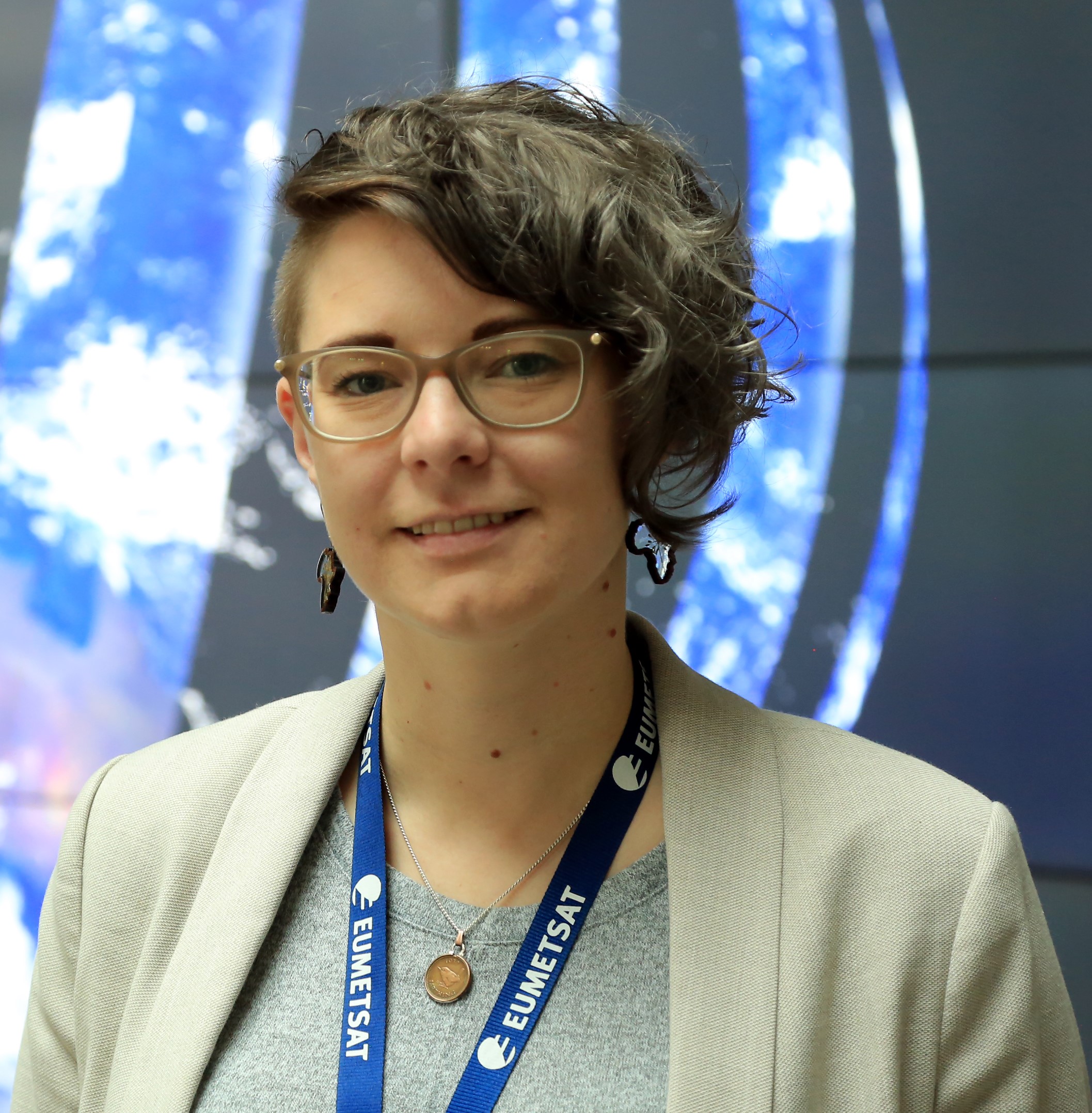
Hayley studied for her PhD in Oceanography in Cape Town, South Africa. She is madly passionate about oceans and sustainable food. She lives in Germany and works at the European Organisation for the Exploitation of Meteorological Satellites (aka EUMETSAT).
About Oceanography
ILYA:
As an intro, can you tell me a bit about your interests in Oceanography and science? Also, what is your role at EUMETSAT?
HAYLEY:
As you’ve mentioned I've got a Masters and PhD degree in Oceanography. I always had a passion for teaching and training. So, I went from working in a research background to working in user support.
In EUMETSAT, I work as an interface between the organization and the people outside. I do basic tasks like answering questions which data to use for an application or how to get data for a particular time period.
At the same time, I report to the Commission on how the data is being taken up and coming up with new strategies to increase the usefulness of our data for people all over the world.
I like working with people, solving problems. Oceanography is diverse and so is my job.
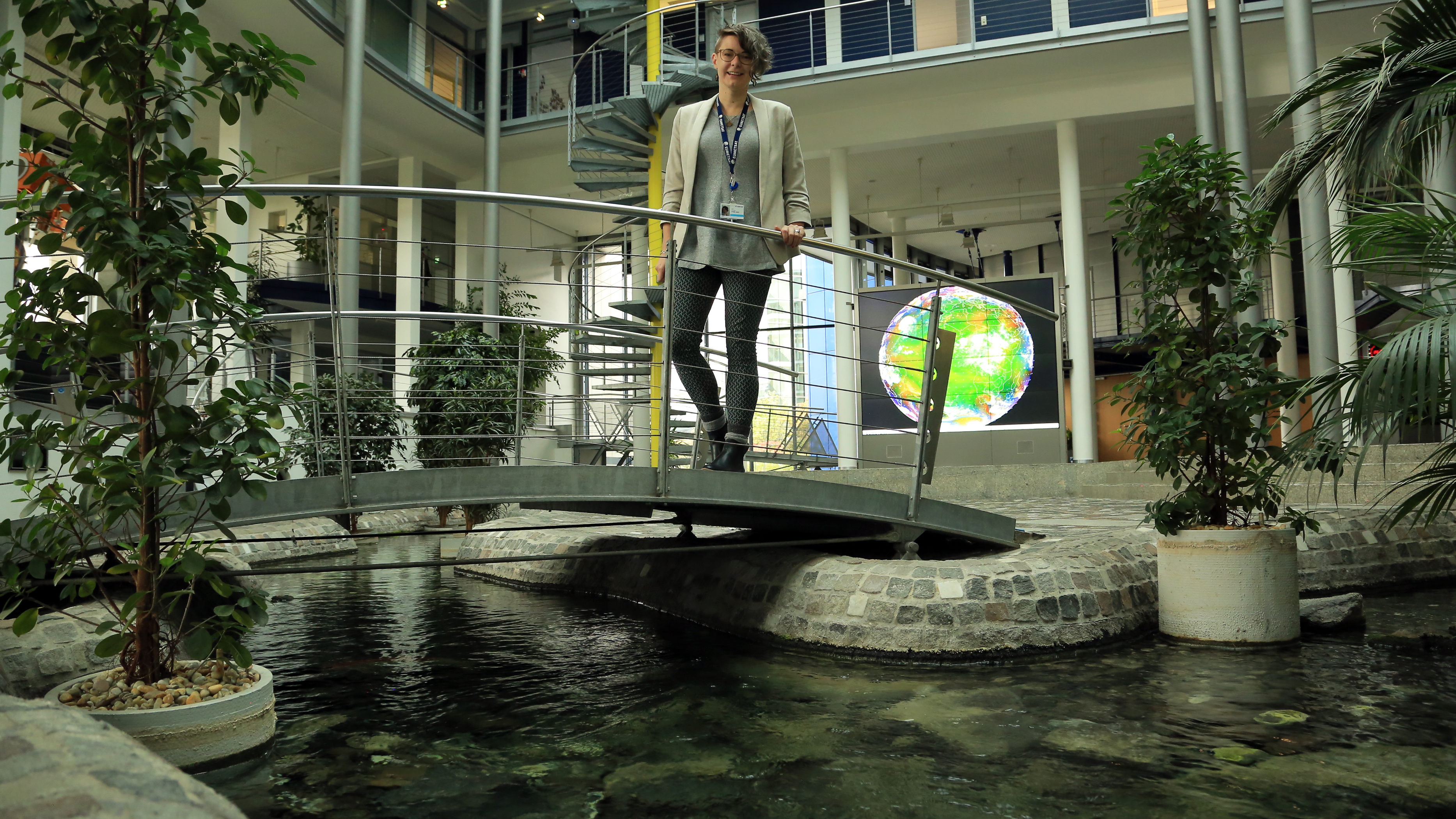
ILYA:
I am also amazed by how complex Oceanography can be. It involves physics, math, chemistry, biology, and many other skills to get the job done.
Before I started to study Oceanography I thought that to be an oceanographer is something like Jacques-Yves Cousteau, that travels the seas and takes measurements.
Quite idyllic, right?
In reality, it’s not only that. Oceanography is a super mathematical discipline. It’s a mountain made of math books.
HAYLEY:
Same here. For me, it was a deep irony as I was not so good at math back at school. But somehow, I’ve constantly ended up coming back to very mathematical parts of Oceanography.
Oceanography can be a real challenge. It's a very complex subject, but I think that's part of what makes it both interesting and beautiful.
ILYA:
I believe the most challenging part of studying Oceanography is the incertitude. You never know what to expect. No one tells you how it’s going to be. Will you travel the seas or will you sit in an office and study satellite images?
HAYLEY:
I think many of us don’t even start as oceanographers at all. Often, we start as engineers, biologists, programmers or physicists. And as time passes, we just end up being drawn to this interesting notion of Oceanography.
I consider Oceanography as the biggest piece of the earth puzzle. I always knew – this is where I wanted to be.
In my case, I never thought if I am going to work by a desk or not. Before I did environmental science but later I narrowed it down to oceanography. I felt like the oceans were an important part to focus on.
Read more about Hayley's transition from Environmental Science to Oceanography in her blog. There she also gives some best advice for PhD students.
ILYA:
Do you think we communicate it enough, attract enough young talents, to study Oceanography?
HAYLEY:
I believe it is challenging both to study Oceanography and also to communicate about its importance.
Oceanography is a distant subject for most people. It is not like land. You pass by the pastures, you eat from the farms but very few ever get to dive into the depths of the ocean to see what’s there.
It takes people time to understand the importance of the oceans. The food oceans provide, directly or indirectly, their impact on the weather, and climate.
Fortunately, we are getting better at that. People become more aware and more concerned about the impact humans have on the oceans, and vice versa!
Living and studying abroad
ILYA:
You travel a lot and recently relocated from the UK to Germany. I am an expat too. 3 years ago, I changed the country by moving from Saint Petersburg to Tallinn. How challenging was it for yourself to stay away from family in the name of science?
HAYLEY:
I lived away before, 5 years in South Africa. I am kind of used to be away from family but it always hard. Somehow being out of my comfort zone is kind of comfortable for me. It keeps me excited.
Moving to Germany was challenging as I don’t even speak German. I am learning it now, although most people speak some English and are supportive in helping me learn. Still, if you can't really speak, you feel like you’re not part of society.
I love this part of Germany (EUMETSAT is located in Darmstadt – Ed.) as it is very international. There are so many cultures, and I learn so many things from them. And I love that.
ILYA:
Looking back in time when you decided whether to make your PhD study, in the UK or South Africa, what would you suggest students do? Go abroad and take their PhDs or do it at home?
HAYLEY:
It is such a difficult decision to make.
For me, going to South Africa wasn’t all fun and games. I wasn’t earning very much back then, I struggled to get all my documentation done and living there did mean taking some risks.
It also had its benefits. Working with a small group with strong international connections, put my career in a place where it couldn’t otherwise be, and in many ways South Africa will always feel like my home.
Overall, you have to choose what suits you best. You have to balance family commitments, finances, what is useful for your career plans, and what is interesting to you.
ILYA:
What makes South Africa such a unique place on Earth to study Oceanography?
HAYLEY:
It is indeed, one of the best places on Earth to study Oceanography. It is the place where two very different parts of the ocean collide – the warm Agulhas current and the cold Benguela upwelling. You also have the Southern Ocean and Antarctica to the south.
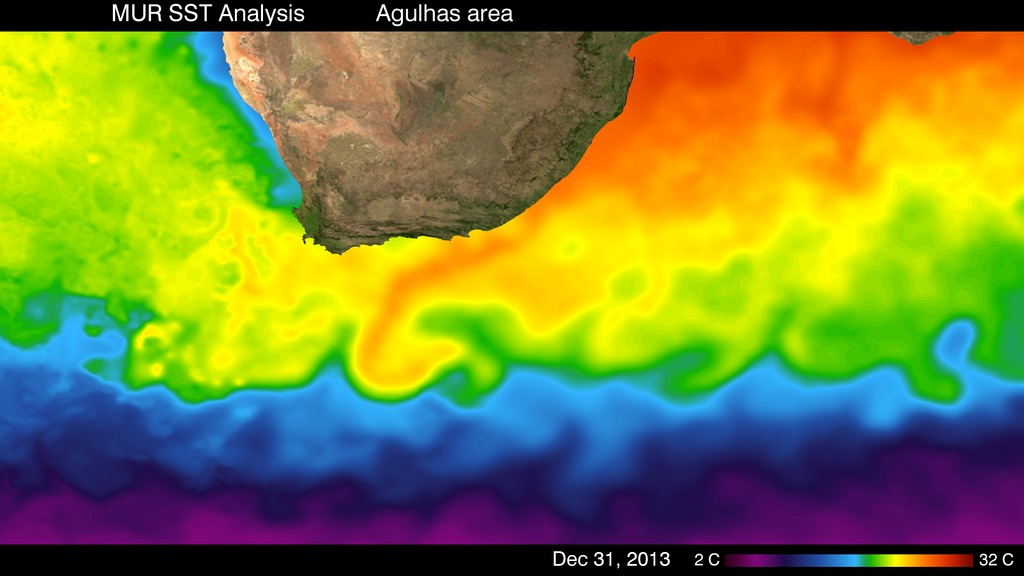
South Africa is a country with a lot of challenges and problems – its history, unemployment, the level of poverty... but the people are amazing. They are hopeful, open-minded and strive to solve things.
There I met so many strong dedicated passionate people that do amazing science! They have a small level of investment but punch really high.
Fisheries and other marine activities are a very important part of its economy, and you see the connection between the ocean, the economy, and people’s life.
So, it was an incredible place to study Oceanography from the physical all the way down to societal relevance.
About Sustainable Development
ILYA:
I am glad you mentioned the connection between Oceanography and economy. Oceanography is very important as it has a major role to protect Earth's resources and communicate the problems of the environment that are happening today.
HAYLEY:
Indeed, resource exploitation is happening and it always will.
We use oil and gas. We fly. We drive. It’s not enough to say you want to save the world. You have to also be pragmatic. You have to think about the people and the economy.
I learned this in South Africa where the level of poverty is pretty high and I always wanted to keep this in my mind.
Sustainable Development is not just environmental, it’s also economic. You always have to think about people and how to make their lives better.
As oceanographers, we have a vital role to advise people on how to do all of these things, in a safer way. To do it well, we have to work closely with other scientists, businesses, and politicians.
About satellite and in situ data
ILYA:
Do you think that remote sensing methods will replace the work of oceanographers who travel the seas and take direct measurements?
HAYLEY:
I think sometimes people can be a bit threatened by remote sensing. They are afraid that satellite data will replace in situ data. I totally disagree! I would not have been able to do my work developing satellite products without in situ data to validate what I was doing.
In situ data can’t be replaced. There is still information we can’t access from satellites.
The synergistic approach in Earth Observation is really important. We need to use all the tools we have: in situ data, model, observations – all working together. So, I will never recommend stopping going to the sea by boat.
ILYA:
I know that there are startups that are trying to automate this task with autonomous unmanned vehicles – UAVs.
HAYLEY:
I am quite excited about this. The truth is, it is expensive to measure in situ data. All these new tools are also expensive but they bring a lot of interesting perspectives.
People use drones, stuck instruments on ferries, CTD tags on elephant seals, turtles, etc. These can be relatively low-cost ways to gather the information that can’t be collected by people. And we should take advantage of it.
About Women in Science
HAYLEY:
In 2012, I published a post on this subject and since then, things have changed a lot.
Women in Science is an issue that is getting more and more attention now. There are lots of initiatives that are happening. That shows us that people are understanding the problems and taking them seriously.
People realized that women love science, science is better with them involved and things need to be done to stop them from leaving this domain.
Many places are working towards things like fairer parental leave. Men can stay home with their kids, support their partners and take a more active role in their family life too.
If we get these sorts of things right, then science is a better place for everybody to be. Not only for women.
About culinary and sustainability
ILYA:
Let's talk about your hobby, and how your everyday choices make an impact?
HAYLEY:
Sustainable cooking is my second love after science. When you come from an environmental background, you start asking yourself different questions. Is it really necessary for taking a flight, driving a car or buying a plastic water bottle? You see the impact of your decisions on Earth and you continually assess your choices.
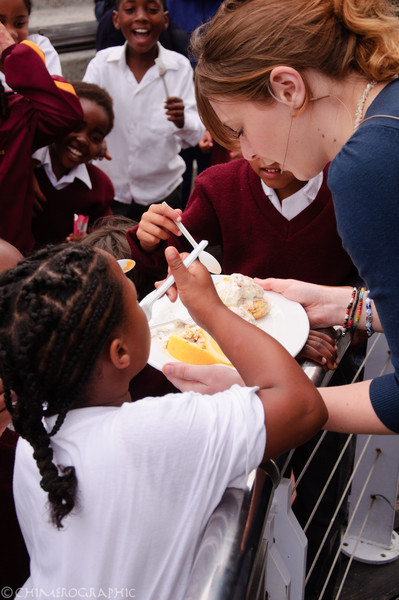
As individuals, we have the power to make better choices with food. Our dietary choices have a large impact on agriculture, land and water use, carbon emissions.
I cook mostly with vegetables, rarely with dairy products, and for very rare and special occasions, with meat.
I am also trying not to be very dogmatic. Everything is about balance and even small changes can lead to bigger things. Instead of saying to people what is good and bad, I try to cook delicious and simple food out of sustainable ingredients and encourage people to enjoy it.
Final Words
ILYA:
As this chat came to an end, what would be the two ideal words to wrap it up?
HAYLEY:
Two words? It’s hard for me to choose two words... Maybe just BE KIND.
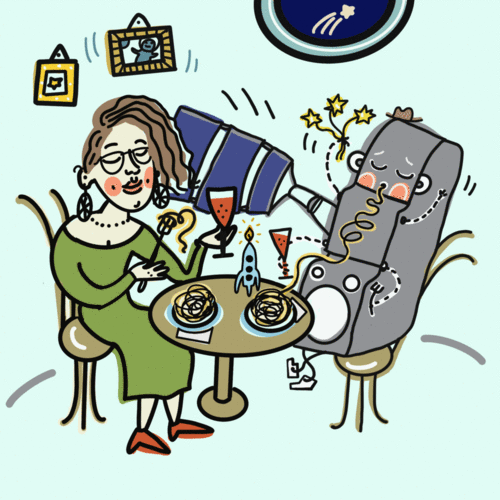
That was the amazing chat I had with Hayley – sincere and friendly, just like she is.
As usually, if you liked this interview buying me a coffee is much appreciated.
Until next time,
Ilya